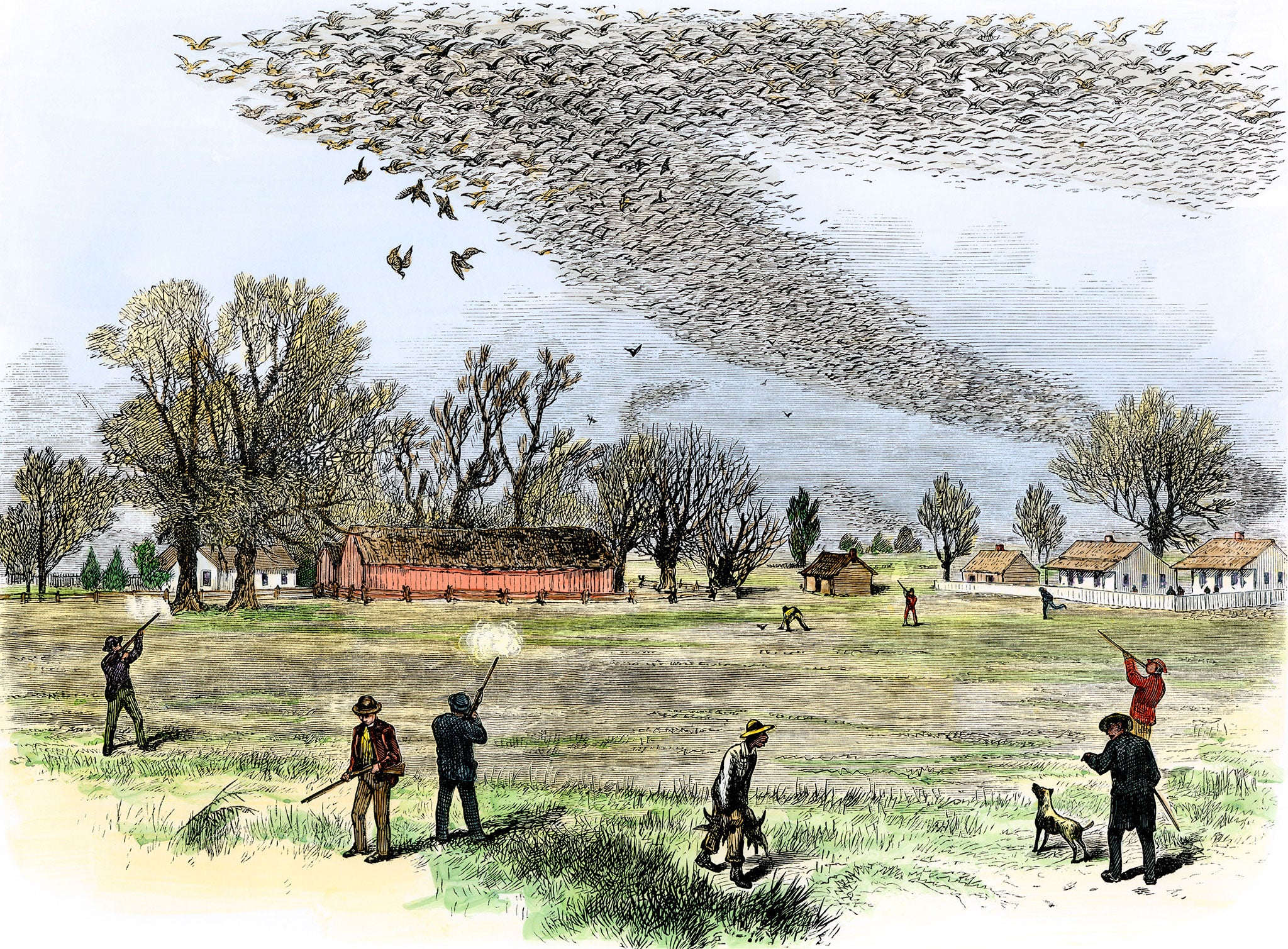Silence to mark the 100th anniversary of the death of last ever passenger pigeon

Your support helps us to tell the story
From reproductive rights to climate change to Big Tech, The Independent is on the ground when the story is developing. Whether it's investigating the financials of Elon Musk's pro-Trump PAC or producing our latest documentary, 'The A Word', which shines a light on the American women fighting for reproductive rights, we know how important it is to parse out the facts from the messaging.
At such a critical moment in US history, we need reporters on the ground. Your donation allows us to keep sending journalists to speak to both sides of the story.
The Independent is trusted by Americans across the entire political spectrum. And unlike many other quality news outlets, we choose not to lock Americans out of our reporting and analysis with paywalls. We believe quality journalism should be available to everyone, paid for by those who can afford it.
Your support makes all the difference.Conservationists will fall silent at noon today to mark the hundredth anniversary of the death of Martha, the last ever passenger pigeon – just as a new project is set up to bring the species back from the dead.
The iconic clock will stop at London Zoo, where Martha died in her cage on 1 September, 1914, ending a demise that was so dramatic that it represents the most extreme extinction in modern history.
The North American passenger pigeon – or wild pigeon – was once so abundant it accounted for 40 per cent of the continent’s birds when Europeans first arrived in the 16th Century, and even by the 1860s it still accounted for one in four birds.
One flock in southern Ontario was reported to be a mile wide, 300 miles long, containing 3.5 billion birds that took 14 hours to pass and eclipsed the sun from noon until nightfall.
However, in the following decades, messages sent across newly-installed telegraph lines enabled hunters to track the movements of a flock and set up ambushes in advance of its arrival, while the developing railroad made it easier to transport them to markets in the rapidly growing urban centres. The deforestation that resulted from agricultural and urban development also took its toll.
Less than 50 years later, not a single one of the multi-billion population remained.
Conservation groups said the tragic loss of the once-booming passenger pigeon should serve as a timely reminder of the fragility of a huge number of species around the world.

“The 100 anniversary of Martha’s death is not only a chance to remember her species, but to draw attention to the plight of countless other species who continue to face extinction because of our actions,” said Ken Norris, director of science and the Zoological Society of London.
Tara Proud, of the RSPB, added: “The decline of the passenger pigeon is strikingly similar to the decline of our very own turtle dove, which currently is halving in number every six years.”
“It’s too late for the passenger pigeon, but 100 years on we don’t have to accept that turtle doves will suffer the same fate,” she added.
Turtle doves are the UK’s fastest declining bird species. For every 20 doves we had in 1970, we now only have one. At this rate, the bird’s UK extinction as a nesting species is a real possibility, Ms Proud said.
Meanwhile, a group of endangered species specialists have set up the world’s first project to “de-extinct” a species – the passenger pigeon. The plan is to extract DNA fragments from preserved pigeons, create a clone and use band-tailed pigeons as surrogate parents. If successful, they will look to apply the technique to other extinct species.
Experts say the project is hugely ambitious. Apart from the difficulty of creating a new passenger pigeon, if they do, it will have no parents to teach it how to behave like a passenger pigeon. Furthermore, if a viable flock was successfully bred and reintroduced into the wild it would be threatened by the huge decline in the pigeon’s preferred habitat of hardwood forests.
The project has been set up by the Long Now Foundation in San Francisco, whose advisors include E.O. Wilson, the hugely influential Harvard University scientist and two-times Pulitzer Prize winner. Last week, he warned that the world faced a “biological holocaust” as devastating as the extinction of the dinosaurs unless humans agree to set aside half of the planet solely for other species.
Join our commenting forum
Join thought-provoking conversations, follow other Independent readers and see their replies
Comments